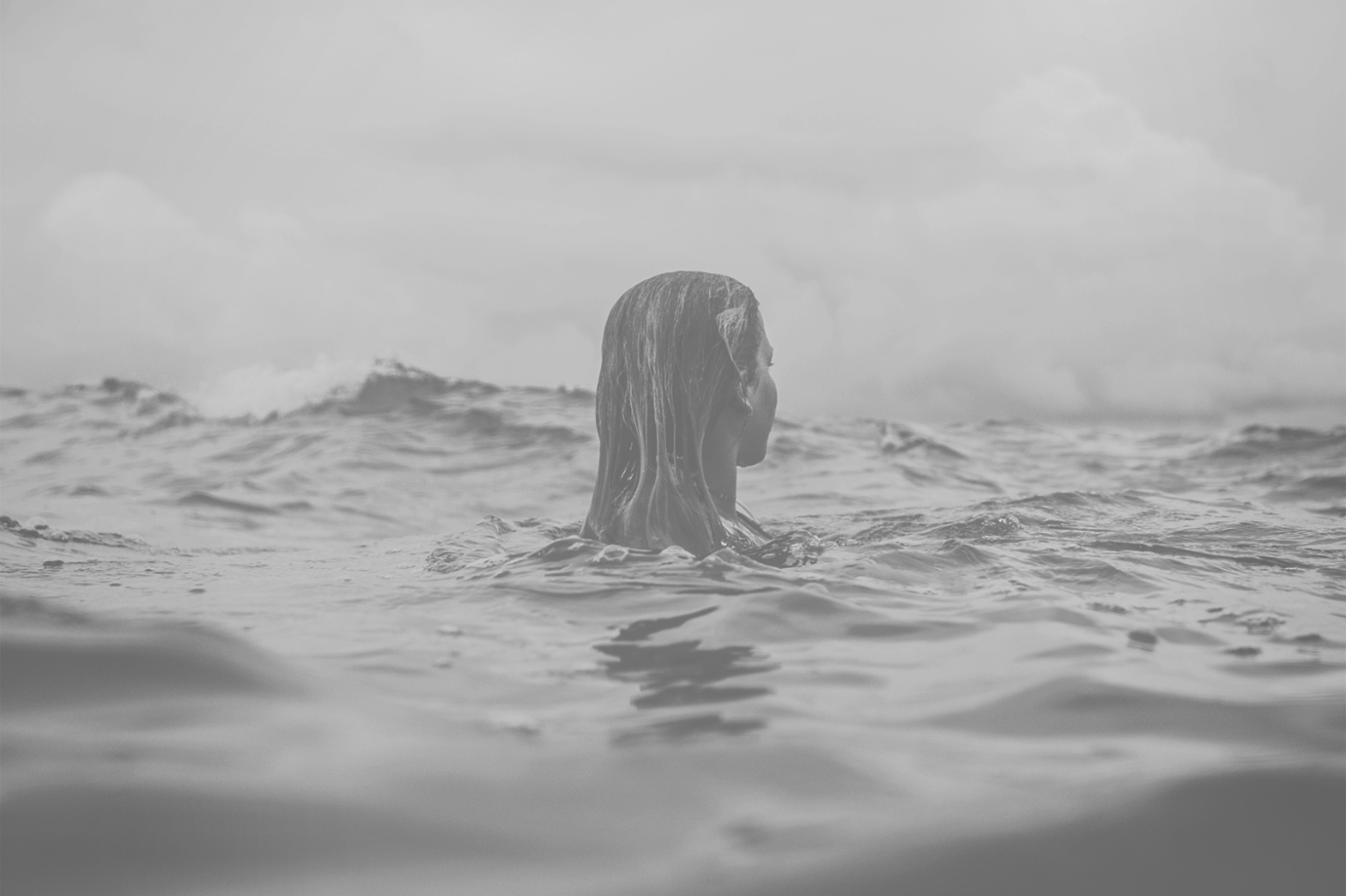The little mermaid’s sisters swam up to where she sat on the dock, and they presented her with a glittering knife. “If you kill the prince,” they sang in forlorn voices, “you can return to us under the sea.”
The sky is red, the sky turns orange, the sky weeps purple with grief. The little mermaid is stunned when she is finally allowed to swim to the surface to see the sky: such a giant block of one color, so different from the undulating watery views she grew up navigating. She knows this is temporary.
“But think again,” said the witch, “for once you are human you can no longer be a mermaid: you will never return to your sisters or swim underwater; if you fail, you will become foam on the crest of the waves.”
Her sisters try to tear the unconscious man from her arms. “Traitor!” they scream at her, for rescuing this human from the depths, but though she is the youngest she is the strongest of them all, and she beat at them with her tail while propelling the human up towards the surface.
The prince asked her who she was and where she came from, but she looked at him sorrowfully for she could not speak. At long last he brought her home to his palace, where beautiful female slaves, dressed in silk and gold, sang and danced. The little mermaid clapped her hands but carried sadness in her eyes: oh, if only she could sing sweetly once more.
He was kind to her. She would always remember that.
The oldest sister’s birthday was in winter, so when she swam up to the surface for the first time, she saw large, beautiful icebergs. They glittered like diamonds and shone like pearls under the moonlight, and all the ships that came near veered away from the frightful storm that arose when the oldest mermaid hoisted herself onto an iceberg to watch the human-made objects cavort.
When the little mermaid goes ashore, there are no more icebergs.
She cast one more lingering glance at the prince, and then threw herself from the ship into the sea, and thought her body was dissolving into foam. The sun rose above the waves, and its warm rays fell on the cold form of the little mermaid, who did not feel as if she were dying.
She takes the knife her sisters gave her and uses the legs the sea witch granted her to find the king among men, the one she saved, and she catches him in a net of charming eyes and smiles. She waits until his meetings are over, until his slaves are gone, until his compound is all locked up.
She saw the bright sun, and all around her floated hundreds of transparent beautiful beings; she could see through them the white sails of the ship, and the red clouds in the sky; their speech was melodious, but too ethereal to be heard by mortal ears, as they were also unseen by mortal eyes.
The sky is red, the sky turns orange, the sky weeps purple with grief. The knife falls from her bloody fingers, and she hopes she is not too late, that the thrumming of her human heart is exhilaration, that the burning of her skin signals the flush of victory, and not the encroaching thirst of the sun that eradicates seasons, evaporates seas, igniting and ending the world.
Jeana Jorgensen earned her PhD in folklore from Indiana University. She researches gender and sexuality in fairy tales and fairy-tale retellings, folk narrative more generally, body art, dance, sex education, and feminist/queer theory. While most of her time goes to teaching college courses at Butler University and publishing her research, she also writes fiction and poetry. Her poetry has appeared at Strange Horizons, Liminality, Quatrain.fish, and Glittership, among other publications. Her poem “The Witch’s House” was nominated for the 2018 Rhysling Award, and her short dystopian story about reproductive rights, “The book you find when you really can’t afford to get pregnant,” won the Spider Road Press Feminist Flash Fiction Award of 2018. She also teaches dance, blogs at Patheos, and is constantly on Twitter.
photo by Jana Sabeth (via unsplash)


